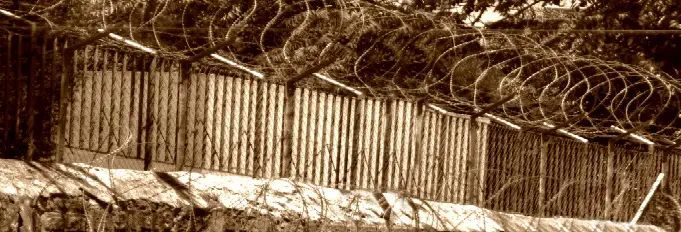"We build our sandbag walls to brace ourselves against the onslaught of negative feedback. Yes, writers are an insecure bunch."
Beginning writers make a lot of mistakes. From improper pacing to shallow characters, young writers are going to make mistakes. It’s the only way to grow. All of these weaknesses can be overcome; however, in my opinion, there is one weakness--the greatest weakness of young writers—which can derail any possibility of improvement.
The biggest weakness I’ve seen in beginning writers (and I’m guilty of it too) is sandbagging.
Now what is “sandbagging”? Sandbagging is building up your defenses and lowering the expectations of another person. This almost always manifests itself when a young writer sends me part of their story to read. They’ll say something along the lines of, “Here you go, it’s absolutely horrible, you’ll understand once you read it.”
I used to do this myself, but I’ve stopped (or I’ve at least tried to stop). Yet so many young writers feel the need to lower their reader’s expectations before they read it; that way, if they don’t like it—we theorize—that’s okay because I know it’s terrible already and it was nothing special anyway.
In my experience, there are two reasons writers sandbag (even if they don’t consciously realize they’re doing it). There are those of us who sandbag, but only to people who we know will be merciful (or at least won’t ridicule us for our writing.) Thus, when we hear positive feedback after the low expectations we’ve set, we seem like writing gurus.
“Wow! She is such a good writer but she thinks she’s terrible! She must know something I don’t know!”
Sandbagging, in this case, is really an expression of pride, I believe. We look good when we criticize our writing and others praise it.
The other reason for sandbagging is that we are afraid. We want to downplay our writing to keep ourselves protected from any criticism that may be lurking in the bushes. We build our sandbag walls to brace ourselves against the onslaught of negative feedback. Yes, we writers are an insecure bunch.
Whether you sandbag for the first reason, the second reason, or both, it needs to stop.
Now, what’s so wrong with sandbagging? If sandbagging really was just a mechanism to brace against criticism, then I might say that it’s okay, but sandbagging is rarely as simple as that.
Unrealistic
Sandbagging is hardly ever realistic. If we want to improve as writers, we have to stay real.
Sandbagging usually involves making up problems that aren’t there, or overreacting to real issues. This can either be out of fear, pride, or both. Whatever combination, when we sandbag, we weave a protective web of self-deception. Consciously or subconsciously, we want to hide from the truth, because we fear that truth will be bad, or horribly depressing. That won’t help us improve. We don’t want to be blind to our mistakes or our strengths.
As a general rule of thumb, things are never as bad as they seem, nor are they as good as we think. Keep that in the back of your mind when evaluating your own writing, and try to objectively evaluate where the weaknesses are. Objectively critiquing our own writing is extremely difficult, which is why finding others to read and critique your writing is paramount to your development. Speaking of others…
Inconsiderate
Sandbagging is inconsiderate to others. They don’t want to hear how deplorable your novel is before you shove it off on them to read. You’re pretty much manipulating them into going easy on your novel, which you don’t want! They may overlook faults in the story because they know how negative you already feel towards it. Your poor critiquer may feel the need to reassure you that your novel has potential, rather than provide you accurate feedback.
We build our sandbag walls to brace ourselves against the onslaught of negative feedback. Yes, writers are an insecure bunch.
Be nice and don’t put your reader in an awkward position by sandbagging them.
Weak
Sandbagging is weak and fearful. Don’t be weak and fearful.
“But I am weak and fearful…”
Oh! There you go again! It’s weak and fearful to say that you’re weak and fearful. That’s the easy way out. You don’t have to be that way. You get to choose!
Even if your writing is astonishingly deplorable (which, if you’re reading this, I highly doubt it is) there is still no reason to be insecure about yourself or your writing.
Everyone has to start somewhere, and you have to write to get better. You don’t need to apologize for where you are; in the same way, you shouldn’t brag for where you are. It’s two sides of the same coin.
Harms your Development
One of the most important aspects to becoming good at anything, is attitude. A positive attitude of excitement leads to hope and motivation. You can focus on enjoying writing for the sake of writing, and not get caught up in the quality of it.
This allows you to achieve the quantity you need to produce quality. Negativity shuts down inspiration and creativity. Don’t be ashamed of your writing, no matter how good or “bad” you think it is. You can’t afford it.
Stop with the sandbagging. Be realistic, and realize the reality is that it takes time and hard work to become good. But if you allow yourself to indulge in negative thoughts about your writing, you will lose the desire to improve and become good. It’s hard to start the climb to greatness when the wall looks insurmountable. You have to start at the beginning, and take it one step at a time.
If you stay positive, and keep practicing and working hard, it’s not a matter of if you will become a great writer, but when.


